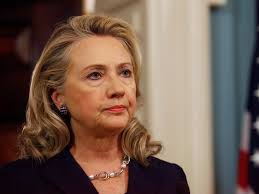If you’re progressive or on the left, here’s your cheat sheet on how to participate in the 2016 presidential election, which is just 18 months away. If you live in one of the first states in the Democratic primary process, like Iowa, New Hampshire, or South Carolina, vote for Bernie Sanders. You can also sign an online petition for him, if you’re into that sort of thing. If you chance upon one of his campaign rallies and have nothing better to do, join the crowd. But don’t do anything else. Don’t become a campaign volunteer, do phone banking, door knocking, get the vote, and certainly don’t send him a dime of your money.
During the general election, if you live in a swing state where polls show a razor-thin margin between Hillary Clinton and whatever crazy the Republicans nominate—and that will be a few states at most—flick a lever for Clinton, if you are inclined. Otherwise, don’t do a thing for her campaign or send her a penny as she and Bill will be raking in $2 billion from their network of plutocrats.
Anyone with a shot of winning the presidency knows they have only two interrelated jobs: CEO of the American-led project of capitalist globalization and Commander-in-Chief of its war machine. At the presidential level, the two parties are aligned on the big issues like free trade, monetary policy, deregulation, welfare, education, and entitlement “reform,” war, surveillance, and policing, borders, and prisons. There is slight to modest contrasts on actual policies (not rhetoric) concerning immigration, healthcare, LGBT and reproductive rights, climate change, and labor issues.
So I am not of the opinion there is no difference between the two main parties—there is a very big one. When a Democrat is president, it spurs left opposition to the whole system. When a Republican sits in the Oval Office, it results in a partisan movement that splits the left and liberals.
Under both Clinton and Obama, the base realized a Democratic White House pushes the same policies as Republicans, but they offer only breadcrumbs in return like a bump in food stamps, more Pell Grants for low-income students, or weak and conditional immigration reform. This helped create the conditions for independent organizing like the global-justice movement, Occupy Wall Street, and Black Lives Matter. When Reagan and the Bushes were in office, the left poured its energy into campaigns to elect Democratic presidents.

